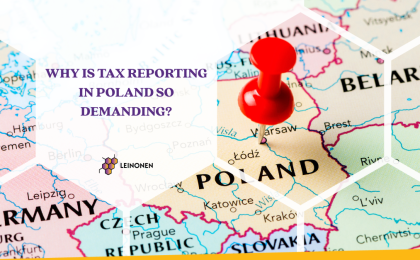Poland’s convenient location at the centre of the EU, and the workforce’s reputation as committed and reliable employees with a great work ethic make it a promising location to do business in.
Like most EU countries, there is an extensive list of public holidays in Poland each year. If you are new to operating a business in Poland, it is vital to know your responsibilities.
When are Poland’s Public Holidays?
Polish public holidays that fall on the same date each year:
- 1st January – Nowy Rok (New Year’s Day)
- 6th January – Święto Trzech Króli (Epiphany)
- 1st May – Święto Pracy (Labour Day)
- 3rd May – Święto Narodowe Trzeciego Maja (Constitution Day)
- 15th August – Wniebowzięcie Najświętszej Maryi Panny (Assumption Day)
- 1st November – Wszystkich Świętych (All Saints’ Day)
- 11th November – Narodowe Święto Niepodległości (Independence Day)
- 24th December – Wigilia Bożego Narodzenia (Christmas Eve)
- 25th December – Boże Narodzenie (Christmas Day)
- 26th December – Drugi Dzień Bożego Narodzenia (St. Stephen’s Day)
Polish public holidays with varying dates each year:
- Wielkanoc (Easter Sunday) – 5th April 2026
- Drugi Dzień Wielkanocy (Easter Monday) – 6th April 2026
- Zielone Świątki (Pentecost) – 24th May 2026
- Boże Ciało (Corpus Christi) – 4th June 2026
What Legal Entitlements do Employees Have During Public Holidays in Poland?
In Poland, employees are entitled to the following if they work on a public holiday:
- Reduced nominal operating time.
- An additional day off (and another if the holiday falls on a Saturday).
- 100% of their hourly rate on top of their regular remuneration for overtime work.
What are the Legal Obligations of Employers During Public Holidays in Poland?
Employers have several responsibilities in relation to public holidays in Poland. These include:
- Providing the day off or arranging an alternative. Public holidays in Poland should be days off for employees, unless work is necessary for a valid reason (e.g. for medical and rescue services). If an employee works on a public holiday, employers must provide a replacement day off established in accordance with the collective labour agreement, or the individual’s employment contract.
- Providing adequate notice. If an employee needs to work on a public holiday, the employer must let them know and agree on a replacement day off in advance.
- Providing additional remuneration. If an employee needs to work on a public holiday, their employer should pay additional remuneration. This must be in accordance with the provisions of the Labour Code or collective labour agreement.
- Being aware of any special regulations relating to their industry. Some industries have specific regulations around working on public holidays and Sundays.
How is Holiday Pay Calculated in Poland?
Alongside public holidays, full-time employees in Poland are entitled to 20 or 26 fully paid days off on annual leave each year. The number of days off allowed depends on how long they have worked for:
- Less than 10 years working = 20 days off.
- More than 10 years working = 26 days off.
- Higher education (bachelor’s or master’s degree) is viewed as equivalent to eight years of work. Therefore, employees with a higher education qualification are entitled to 26 yearly days off after just two years working.
When calculating holiday pay, employers in Poland must consider an employee’s current base salary and variable components (e.g. regulatory bonuses, overtime pay and allowances for night work).
Holiday pay in Poland can be worked out using the following process:
- Add up the amount of base salary and variable components an employee has earned in the last three-month period.
- Add up the number of hours the employee has worked during the same period.
- Divide the total pay by the number of working hours to work out an average hourly rate.
- Multiply their average hourly pay by the number of working hours in the holiday leave period.
Manage Tax, Payroll and Accounting in Poland With Leinonen
Navigating public holidays and other regulations in a new country can be overwhelming for businesses. Having operated in Poland for over 14 years, Leinonen can offer the detailed, industry-specific support you need with everything tax, payroll and accounting related as you set up your business in Poland.





